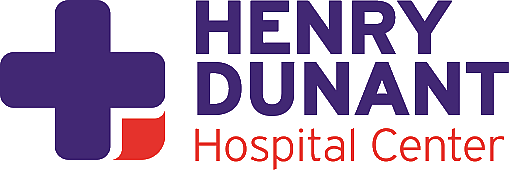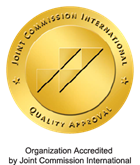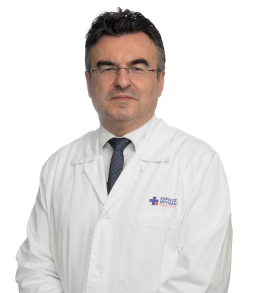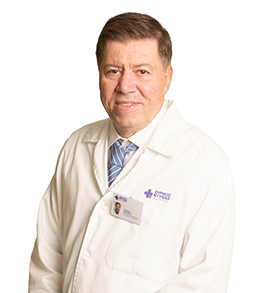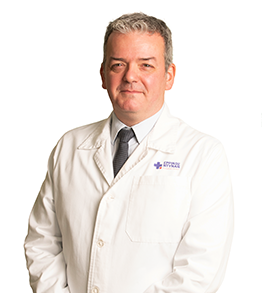
Neurosurgeons' Team - Head A. Stathopoulos
Excellence in surgical care
The new Neurosurgical department of Henry Dunant Hospital Center has evolved to meet the recent challenges and demands of medical practice in today’s ever-changing world. However, we continue to maintain the tradition of excellence and health care so that we remain the leader in neurosurgical care.
Our mission guides us to offer innovative patient care and cutting-edge research to advance the field of Neurosurgery.
Our Neurovascular Service will be the largest in Athens and we are working to establish a strong collaboration with the Neurovascular Service. Moreover, the Epilepsy surgery program is growing as more patients become aware of the availability of services that can be found in our Hospital. Through the collaboration with a multidisciplinary team, spine surgeons offer surgery as well as medical care for complex spine disorders.
The Neurosurgery department relies on a proud and distinguished tradition to offer the highest possible patient care.
Activities
Our surgeons have extensive experience in treating brain tumors while minimizing damage to surrounding structures. The advanced surgical techniques include:
- Image-guided neurosurgery
- Intraoperative magnetic resonance imaging (MRI) and CT scan
- Microsurgery that operates on microscopic structures through a microscope, often used for skull base tumors
- Endoscopic skull base surgery, a non-invasive way to remove tumors through natural openings, such as the nasal passages
- Vascular conditions of the brain and the spinal cord (treatment and management)
- Treatment of aneurysms and other vascular malformations with microsurgical and/or endovascular technique (embolization)
- Primary and metastatic tumors of the brain, spinal cord, spine and peripheral nerves: with microsurgery and open surgery (duration of hospitalization less than 5 days)
- Pituitary adenomas with the use of endoscope and neuro-dialator (duration of hospitalization 24-72 hours)
- Benign (degenerative) vertebral conditions, such as intervertebral disc herniation, using innovative microsurgical techniques (duration of hospitalization 24 hours or less)
- Skull base approach for issues such as meningioma, auditory neuron and schwannoma with a combined multi-therapeutic assessment program and surgical treatment:
- Complex meningiomas
- chordomas
- Chondrosarcoma
- Cholesterol granulomas
- Epidermoids
- Glioneuronal neoplasms/tumors
- Glomus jugulare tumors
- Giant or complex cerebral aneurysms
- Arteriovenous fistulas, including carotid and spiral fistulas
- Cerebrospinal fluid leaks
- Craniocerebral trauma
- Spinal cord injuries with or without spinal cord injuries and compressions
- Surgical conditions and/or stereotactic and functional neurosurgical treatment, such as cranial nerve neuralgia and microvascular decompression, chronic neuropathic pain treatment with neuromodulation and electrical stimulation of the posterior space of the spinal cord and the peripheral nerves and central neurostimulation.
